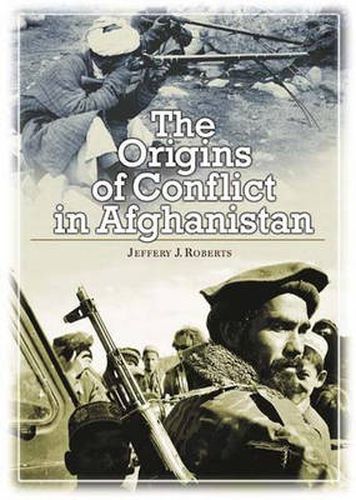Readings Newsletter
Become a Readings Member to make your shopping experience even easier.
Sign in or sign up for free!
You’re not far away from qualifying for FREE standard shipping within Australia
You’ve qualified for FREE standard shipping within Australia
The cart is loading…






Focusing on Afghanistan’s relations with the West during the latter half of the 20th century, this study offers insights into the long-term origins of the nation’s recent tragedies. Roberts finds that, since the 1930s in particular, Afghanistan pursued policies far more complex, and considerably more pro-Western, than previous studies have surmised. By the end of World War II, Britain and Afghanistan seemed headed toward an extensive partnership in military and economic affairs. Opportunities to cement Afghanistan to the West existed, but ultimately ran afoul of regional politics, shortsighted policy and indifference. The rise of the Indian nationalist movement and the eventual partition of India would have strategic ramifications for Afghanistan. Pakistan and India, weakened and poised against each other, saw no reason to aid the Kabul regime, leaving only the United States as a potential benefactor. Successive American administrations, however, denied most Afghan requests. When the Eisenhower administration extended support to Pakistan, it alienated Afghan leaders, who then chose to broker a deal with the Soviet Union. Roberts analyzes recent American policy toward Afghanistan and its neighbours, clarifying the current situation and offering guidelines for future relations.
$9.00 standard shipping within Australia
FREE standard shipping within Australia for orders over $100.00
Express & International shipping calculated at checkout
Focusing on Afghanistan’s relations with the West during the latter half of the 20th century, this study offers insights into the long-term origins of the nation’s recent tragedies. Roberts finds that, since the 1930s in particular, Afghanistan pursued policies far more complex, and considerably more pro-Western, than previous studies have surmised. By the end of World War II, Britain and Afghanistan seemed headed toward an extensive partnership in military and economic affairs. Opportunities to cement Afghanistan to the West existed, but ultimately ran afoul of regional politics, shortsighted policy and indifference. The rise of the Indian nationalist movement and the eventual partition of India would have strategic ramifications for Afghanistan. Pakistan and India, weakened and poised against each other, saw no reason to aid the Kabul regime, leaving only the United States as a potential benefactor. Successive American administrations, however, denied most Afghan requests. When the Eisenhower administration extended support to Pakistan, it alienated Afghan leaders, who then chose to broker a deal with the Soviet Union. Roberts analyzes recent American policy toward Afghanistan and its neighbours, clarifying the current situation and offering guidelines for future relations.